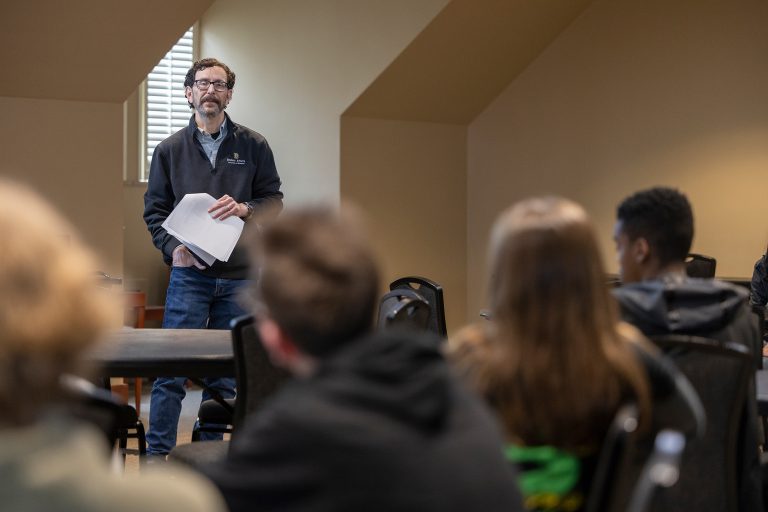Crunch time

By Jesse Berlin
This story was originally published Dec. 3, 2020.
College can make anyone anxious, but the end of the semester can be a major time for stress. Between final exams, final projects and final grades, students may have a lot to worry about.
For sophomore Max Bodenhausen, the end of the semester makes him restless.
“I will lie awake at night and think about it for a little bit and just sit in my bed and then be like, ‘Stop thinking about the fact that I have a test tomorrow — stop thinking about it, I need to sleep.’”
Michael Kaplan works as a counselor at the MU Counseling Center. End-of-the-semester anxiety is something he sees a lot.
“We have this system that, for better or worse, tends to include finals or final projects or final papers that have a lot of weight towards students’ grades,” said Kaplan. “This kind of system of evaluating students can add to anxiety for a lot of people. It brings out the perfectionism that might be present in a lot of students.”
Kaplan says when students are faced with a lot to do, and do well, in a dwindling amount of time, they tend to throw their own well-being out the window in order to get things turned in on time. That’s why he says self-care is the first step towards making an already anxious time a little better.
“Take breaks, get up, walk around, try and get some movement, some exercise, try to eat healthy meals, regular meals, get some sleep,” said Kaplan.
He also suggests spending time outside, even if it’s just a “brisk walk around the block,” spending time with loved ones and avoiding too much caffeine, as the stimulant can make an anxious person even more jittery.
Bodenhausen says distracting his mind with chores around the house helps reduce anxiety a lot more than staying sedentary.
“I try to occupy myself with productive activities, because when I occupy myself with video games or doom-scrolling, then I ultimately will just feel bad about myself later.”
Kaplan doesn’t believe there should be a stigma around acknowledging you may have anxiety and seeking treatment. He encourages students to feel comfortable scheduling an appointment at the Counseling Center, just as they might schedule an appointment with a doctor for a physical problem.
“Unfortunately, some people see asking for help as some kind of weakness,” said Kaplan. “Personally, I think that it takes a lot of bravery to ask for help, to admit that you may be struggling, and I think that everybody can benefit from some self-improvement.”